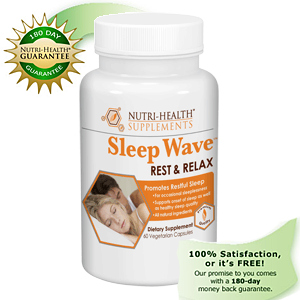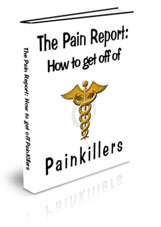By Mark Gregston
It used to be that older teens were most susceptible to drug experimentation, but kids today are experimenting earlier and earlier. In fact, 10- to 14- year-olds are now the most likely to begin experimenting with one intoxicating substance or another. Today’s pot is several times more potent than it was just a few years ago and heroin is even more accessible in some schools today than alcohol.
Illegal drugs get a lot of news coverage, but there are literally thousands of less sinister, but potentially more dangerous, ways for kids to get high, including: prescription pain medications like Oxycontin and Vicodin, or even some of the plants found in your yard. Some kids even get a buzz off of massive doses of certain vitamins.
Most teens think they’re invincible, so their drug history is their badge of courage. They learn about every source of intoxication from the Internet and then try them one after another. they could be experimenting with huffing aerosol propellants, glues, gasoline, or paint. Or, they could be crushing cold medications and sniffing them like cocaine or guzzling liquid cold medicines. They could be taking your prescription drugs or taking nothing at all and just playing the “choking game” to get a temporary high from near asphyxiation. Still others show their courage by experimenting with the harder drugs like ecstacy, crystal meth, crack, cocaine, LSD, or heroin, which are all highly addictive.
When Does It Start?
When I ask kids in our counseling program the age they started experimenting with drugs or alcohol, they usually report it was in the 7th or 8th grade; and some as early as the 5th grade. Most say they were introduced to drugs or alcohol when staying overnight at a friend’s home or other overnight youth event; or, at their friend’s house after school when their parents weren’t home. Others were introduced to drugs or alcohol when attending parties – usually parties where older teens are present and parents are absent, distracted, or don’t care. Fact is, parents today who allow their teenagers to stay overnight with friends may be putting their teen in peril.
By the time most parents first discover their child is using drugs, the child has usually been involved for several years. But if parents can be diligent in keeping their kids from experimenting with intoxicating substances before age 14, they’ll be less likely to get started at all, so it’s important to be the most vigilant in the critical tween and early teen years.
The Addicted Teen
There’s obviously a difference between experimenting with drugs and being addicted. However, experimenting is no less dangerous, since we hear stories every day of deaths of first-time users. And some drugs are so addictive, that they can lead to a lifetime addiction with their very first use.
There’s nothing more gut-wrenching for a parent than to deal with their teenager’s drug addiction. Just watch a few episodes of the show “Intervention” on television and you’ll see what dealing with an addict is like. It’s a constant nightmare, not just for an addict, but for the entire family. The lying, stealing, fits of anger, run-ins with the law and constant fear that the child will overdose can destroy and bankrupt a family. And it won’t get better without treatment and ongoing support, sometimes spanning the addict’s entire life.
Sadly, each year more than a million teenagers need to go into substance abuse treatment programs. And just like alcoholism, many of them will struggle with that addiction throughout their entire life. That’s why it’s far better for parents to prevent kids from experimenting with drugs early on, before they get a foothold.
Why Do They Experiment?
Kids are usually motivated to experiment with drugs by curiosity and the need to fit in. They want to try what their friends are trying, and they have a great need to belong.
Some kids experiment because they are seeking relief from anxiety or emotional pain. In essence they are self-medicating or using drugs or alcohol to cope with the stresses they are feeling. For instance, many kids use marijuana to reduce their anxiety, but medical studies show that the prolonged use of the drug has the opposite effect, leading to heightened anxiety, depression, nervousness, mental disorders, paranoia and panic attacks. While some parents diminish the seriousness of use of marijuana, they should pay attention to what the National Institute on Drug Abuse says are the effects of its prolonged use. They report it can cause, “…impaired attention, memory problems, diminished learning capacity, interference with the formation of memories and the ability to retain knowledge, a general apathy toward life events, poor coordination, diminished interpersonal skills, and poor judgment.”
Sadly, other kids experiment with drugs to tempt their fate. Teens with more serious emotional and psychological problems turn to dangerous concoctions or massive doses of drugs as a form of “Russian Roulette.” They reason, “If I die, then so be it.” Not a week goes by that I don’t receive a message from a parent or grandparent, heartbroken that their teen overdosed and died.
Signs of Drug Use
There are many signs of substance abuse that a parent should watch for, but the only way to know for sure is to take your teenager to get a full-spectrum drug and alcohol test (a test for many types of drugs). To be sure, have it done professionally by a local lab that processes tests for businesses. Give your teen little forewarning to prepare for the test, since they can usually find ways on the Internet to falsify the results.
A substance abuse test is warranted if you see any of these signs:
- Masking – you notice that they are consuming mega doses of vitamins, teas and herbs in attempt to mask drug use.
- Increased lying – not just once or twice, but chronic dishonesty, especially if lying is new for your teen.
- Breakdown in normal habits – drastic changes in sleep, appetite, the ability to complete schoolwork, loss of interest in things they once loved, extreme forgetfulness, and marked decrease in hygiene.
- An unusual odor on clothes or in the room — frequent use of incense or deodorizers to mask the smell, frequent use of eye drops (to alleviate bloodshot eyes), extended periods locked alone in their room or the bathroom, frequent use of the garage or shed or other vacant buildings.
- Change in friends – your teen exchanges healthy friendships for fierce loyalty to questionable people you don’t even know. They may even run away, or disappear with their new friends for long stretches of time.
- Stealing or sudden wealth — shoplifting, credit card abuse, valuables disappearing from the home without explanation. Or, you may see unexplained money, jewelry, new clothes, or new gadgets from the selling of drugs (even from selling your prescriptions).
- Change in schedule – up all night, or up very late at night, sleeps for days, misses work, misses appointments, wants to be on the phone late at night or regularly wants to stay overnight at a friend’s house or out camping.
- Aggression, anger, mood swings, disrespect, and blaming – to an unreasonable degree, and directed against you and your family or other authorities.
- Drug paraphernalia — pincers or paper clips for smoking, empty or disassembled pen cases for snorting, empty aerosol cans, burnt spoons, homemade pot pipes, steel wool, hypodermic needle parts, unknown prescription bottles, empty liquid cold remedy bottles, cold remedy blister packs, missing glues or solvents, or knives and spoons used for crushing and sniffing pills repeatedly show up in their room.
- Dropping grades– lack of care for school, sports or other healthy pursuits.
Drugs May Be the Behavior Issue
It’s easy to identify bad behavior and blame drug use on teenage rebellion, but it could be that drugs are what’s affecting your child’s behavior. The real dilemma comes from the parent not believing their child might be experimenting with or using drugs in the first place. This is simply denial. Until a parent understands the real possibility of drugs use — even if their teen has good Christian friends and is active in church — they won’t be able to get to the root of the problem.
You may not understand the reason your child has chosen drug use as their way to “cope” with some giant in their life, but that’s another matter altogether. And because it is inconceivable that your child would ever do such a thing, you may fail to consider it, discuss it with him or drug test him to find out. I’ve found that parents with kids in Christian schools are the least likely to admit their teen has a problem. After all, they are in a “safe” environment, right? Wrong! Kids that have come to our program with drug issues tell me that the drug problem is more prevalent, not less, in the Christian schools they’ve attended than in public schools.
Before Counseling, Get the Drug Use Under Control
Since drug use may be the cause of behavioral issues, all the behavioral counseling in the world will have little positive effect until the drug use is stopped and the lingering effects of the drug are out of the teenager’s system. Depending on the drug that was used, the after-effects can last several months. That’s why at Heartlight, we require that kids with known drug dependencies first go through a separate addiction treatment program. We cannot deal with their inner issues until the drug issues are taken care of. Likewise, don’t attempt to get counseling for your teen until the drugs are out of their system. It’s a waste of money and time. The best plan is to have the two therapies work hand in hand, ensuring that the ongoing support of an Alcoholics Anonymous or Narcotics Anonymous program continue in tandem with your teen’s counseling for emotional and behavioral issues.
If your teen is showing any of the signs I’ve already mentioned, I recommend that every few weeks, unannounced, you drug test your teen. Make it a prerequisite for using the car. Hold them accountable to the results, just as if a court would hold them accountable if they were on probation. Test them even when they squeal in protest or appear disappointed that you don’t trust them. Easy-to-use home drug and alcohol test kits can be bought in almost any drug store that can be used for regular monitoring. And when you test them, stay in the room. Don’t trust them to give you a valid sample. If they are getting caught up in that culture, they’ll also know ways to get around the test and they’ll have no trouble lying to you about it.

Overall, your teenager needs to know you will do everything in your parental power to keep drugs from becoming a part of their history, even if it means putting them in an addiction treatment program or reporting them to the authorities and landing them in jail. Better a few days in jail and a time on probation where they’ll get tested regularly, than a lifetime in the grip of drugs.
Don’t stick your head in the sand or otherwise pretend that your teen knows better than to try drugs. If you are dealing with an out of control teen, and there have been no other traumatic events or psychological problems in your child’s life, you are most likely dealing with the effects of drugs or alcohol or other intoxicating substances in one form or another. The sooner you know what you are dealing with, the better the chance you’ll have for finding the right kind of help for your child.













